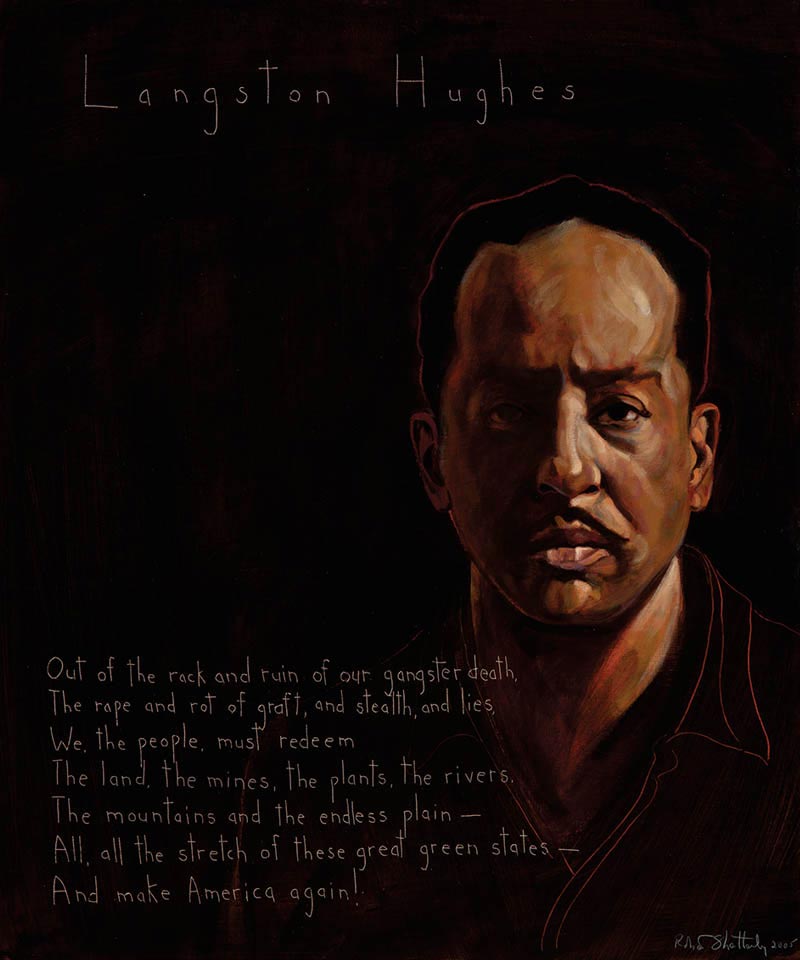
Langston Hughes
Poet, Novelist, Playwright : 1902-1967
“Out of the rack and ruin of our gangster death,/ The rape and rot of graft, and stealth, and lies,/ We, the people, must redeem/ The land, the mines, the plants, the rivers./ The mountains and the endless plain —/ All, all the stretch of these great green states —/ And make America again!”
Biography
The words of “Let America Be America Again” are as alive and relevant today as they were when Langston Hughes wrote them in 1935. They remind us that we, the people, are responsible for our government and our future.
Hughes’s words have inspired—and challenged—millions of people since he published his first volume of poetry, The Weary Blues, in 1926. He was among the first to write about the African American experience in language that reflected and celebrated the culture.
Born in Joplin, Missouri, to mixed-race parents who divorced when he was young, Hughes was raised mostly by his maternal grandmother, Mary Patterson Langston. Her first husband, Lewis Leary, was an abolitionist who died at Harper’s Ferry as a member of John Brown’s band. Inspired by Mary to write about African Americans, Hughes wrote his first poem when he was thirteen.
Hughes attended Columbia University for a year and then traveled to Africa and Europe, working as a seaman. He continued to write, and by the time he returned to the United States in 1924, he had gained a reputation in African American literary circles as a gifted young poet. His work was central to the Harlem Renaissance of the 1920s. Among his innovations was the fusion of traditional verse with jazz and blues.
In the early 1930s, after he visited the then Soviet Union, Hughes’s work took a more political turn He spent the rest of the decade writing plays and poems that often blended socialist messages, Black Nationalism, and the blues.
Throughout his life, Hughes remained convinced that art should be made as accessible to as many people as possible. He made a monumental contribution to this effort with ten volumes of poetry, eight short story collections, two novels, a number of children’s books, a two-volume autobiography, and many plays, essays, and translations. With his powerful words, Hughes celebrated Black culture and music and a universal humanity.
Programs
Americans Who Tell the Truth (AWTT) offers a variety of ways to engage with its portraits and portrait subjects. Host an exhibit, use our free lesson plans and educational programs, or engage with a member of the AWTT team or portrait subjects.

Education
AWTT has educational materials and lesson plans that ask students to grapple with truth, justice, and freedom.

Exhibits & Community Engagement
AWTT encourages community engagement programs and exhibits accompanied by public events that stimulate dialogue around citizenship, education, and activism.